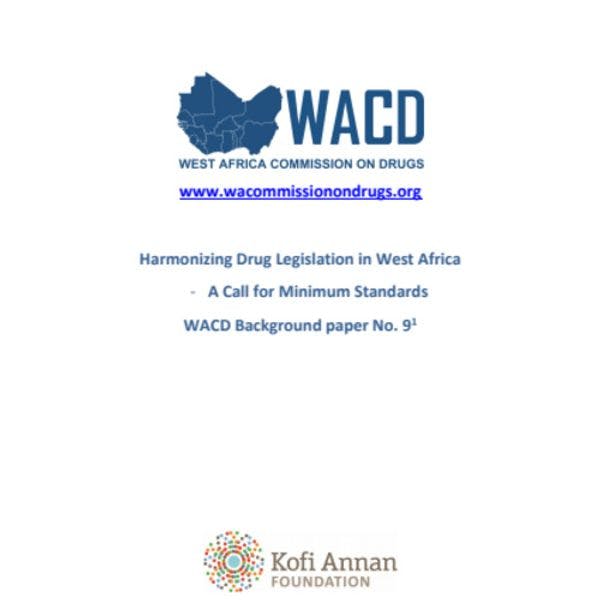Harmoniser la législation relative aux drogues en Afrique de l’Ouest: un appel pour des normes minimales
Ce rapport de synthèse expose une série de recommandations pour la mise en place de normes minimales dans la législation relative aux drogues dans la région. Pour en savoir plus, en anglais, veuillez lire les informations ci-dessous.
Abonnez-vous à l'Alerte mensuelle de l'IDPC pour recevoir des informations relatives à la politique des drogues.
In January 2013 the West Africa Commission on Drugs (WACD) was launched with the purpose of inter alia mobilizing public awareness, and developing evidence-based policy recommendations around drug trafficking and drug consumption and related impacts. Throughout its country visits and in the background papers commissioned to inform its work, WACD Commissioners were repeatedly informed of the significant challenges that persist with regard to drug related legislation in the sub-region, as well as challenges regarding the effective implementation of the legislation.
Beyond a range of technical challenges cited, and the lack of the necessary expertise on the part of law enforcement and the judiciary for implementing drug-related legislation, the Commissioners were also informed on repeated occasions that people who use drugs and low-level drug dealers tend to be the ones who feel the brunt of the law, while high-level actors in the drug market tend to benefit most from legal inconsistencies or loopholes, corruption or political interference in due process. In addition, despite the human right protections directly or indirectly provided for in national legislation, these are rarely respected when it comes to providing treatment for people who have come into conflict with the law for drug-related offences.
In this regard, and cognizant of the fact that different initiatives are already underway in West Africa, the WACD commissioned an empirically informed paper on a sampling of national drug laws and related legislation in four (4) countries in West Africa. As a means to better understand how legislation is being applied in practice, the paper was also informed by interviews with law enforcement and prison officials as well as a sampling of people in pre-trial detention or serving sentences for drug offences in the same four countries. The four countries selected for the case studies are Ghana, Nigeria, Mali and Guinea.
The findings of the four case studies were presented to the WACD at its third meeting held in Accra, Ghana in October 2013. Subsequently, a small expert group drew from the case study findings, analysis of legislation in other countries (particularly Senegal, Sierra Leone and Liberia), and the findings from other background papers commissioned by the WACD to develop this synthesis report which puts forward a series of recommendations for minimum standards for drug related legislation in the region. It is hoped that the findings and recommendations of this synthesis report will fuel further discussion and serve as constructive input to ECOWAS and national policy makers as they move toward reviewing and harmonizing national drug legislation in West Africa.
Keep up-to-date with drug policy developments by subscribing to the IDPC Monthly Alert.
Téléchargements
Sujets
Régions
Profils associés
- West Africa Commission on Drugs (WACD)
